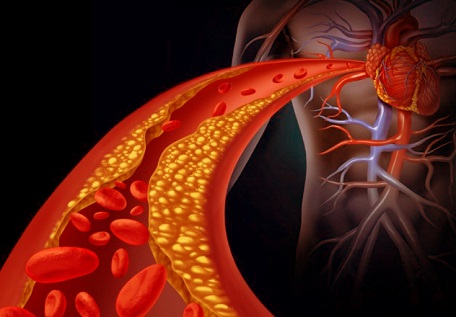Is Platelet-Activating Factor the Key Link Between COVID-19 and Atherosclerosis Risk?
Nikhil Prasad Fact checked by:Thailand Medical News Team Nov 10, 2024 1 year, 3 months, 1 week, 3 days, 21 hours, 50 minutes ago
Medical News: Researchers from Harokopio University in Athens, Greece, and Nova Southeastern University in Florida, USA, are investigating the role of a molecule called platelet-activating factor (PAF) in the connection between COVID-19 and atherosclerosis, a disease in which plaque builds up in the arteries. This molecule, known for driving inflammation and blood clotting, is attracting attention as a potential link between COVID-19 complications and heart disease.
 Is Platelet-Activating Factor the Key Link Between COVID-19 and Atherosclerosis Risk?
Is Platelet-Activating Factor the Key Link Between COVID-19 and Atherosclerosis Risk?
This
Medical News report explores how PAF might explain why COVID-19 can worsen or even cause cardiovascular conditions. When the SARS-CoV-2 virus infects the body, it can induce a "cytokine storm" - a severe immune reaction that triggers widespread inflammation. This inflammatory state is dangerous because it can worsen existing arterial plaques or create new inflammatory responses in blood vessels, increasing the risk of heart attacks and strokes.
What is Platelet-Activating Factor?
PAF is a lipid molecule that has a potent inflammatory effect on blood vessels. Under normal conditions, it helps with immune responses. However, in excess, PAF causes blood vessels to become inflamed and sticky, allowing platelets to accumulate and form clots. This process is central to both the progression of atherosclerosis and the severe complications of COVID-19. In people with COVID-19, the virus can stimulate cells to release more PAF, which, in turn, can cause blood vessel inflammation and increase clotting risks.
The researchers noted that PAF may play a dual role in COVID-19 and heart disease. Specifically, PAF can make the lining of blood vessels (endothelial cells) dysfunctional, which is an early step in atherosclerosis. This dysfunction makes it easier for platelets to stick to vessel walls, where they can form clots and block blood flow. PAF also promotes a hyper-inflammatory response, which could contribute to the severe cardiovascular complications often seen in COVID-19 patients.
COVID-19, Inflammation, and Heart Disease
Inflammation in the blood vessels is a critical factor in both COVID-19 and atherosclerosis. The SARS-CoV-2 virus’s spike protein may even directly stimulate PAF release, causing monocytes (a type of white blood cell) to secrete inflammatory molecules, leading to additional inflammation around blood vessels. This inflammatory cascade can cause plaque to rupture, potentially resulting in serious cardiovascular events like heart attacks or strokes.
The researchers also point out that targeting PAF might be a therapeutic strategy for reducing both COVID-19 severity and cardiovascular risk. By interrupting PAF signaling pathways, it might be possible to lessen the immune system’s overreaction, lowering inflammation and reducing the risk of heart complications in COVID-19 patients.
Implications for Future Treatment
With PAF implicated in both COVID-19 and atheroscleros
is, treatments that block its effects could offer dual benefits. For example, anti-PAF medications might not only help prevent the severe inflammatory responses seen in COVID-19 but also reduce heart disease risks by stabilizing plaques in the arteries.
This dual-action approach could be groundbreaking, especially for high-risk groups like the elderly or those with pre-existing heart conditions. More research is needed to develop drugs that safely target PAF without interfering with necessary immune responses. Future studies might also investigate whether lifestyle factors or certain foods can influence PAF levels, providing simpler ways to mitigate risk.
Conclusion
The study emphasizes that understanding PAF’s role could open new avenues for treatment, potentially offering a way to address both COVID-19 and heart disease with a single approach. While more research is essential, this new understanding of PAF might help doctors better manage cardiovascular risks in COVID-19 patients, possibly even leading to new preventive strategies.
The study findings were published as a letter in the peer-reviewed journal JACC: Advances.
https://www.sciencedirect.com/science/article/pii/S2772963X2400677X
For the latest COVID-19 News, keep on logging to Thailand
Medical News.
Read Also:
https://www.thailandmedical.news/news/american-study-warns-that-covid-19-is-triggering-the-onset-and-progression-of-atherosclerosis-in-many
https://www.thailandmedical.news/news/geniposide-a-promising-treatment-for-covid-19-and-atherosclerosis-patients
